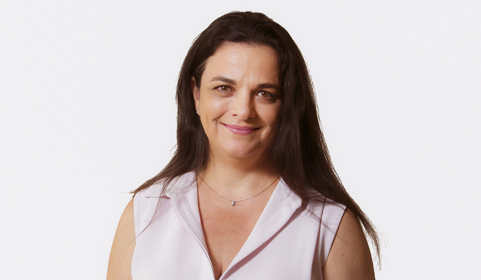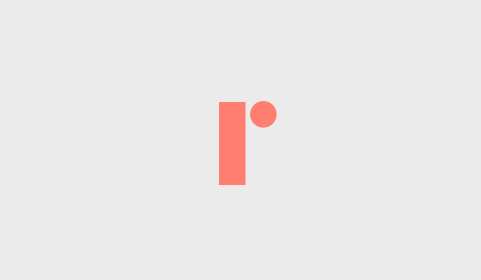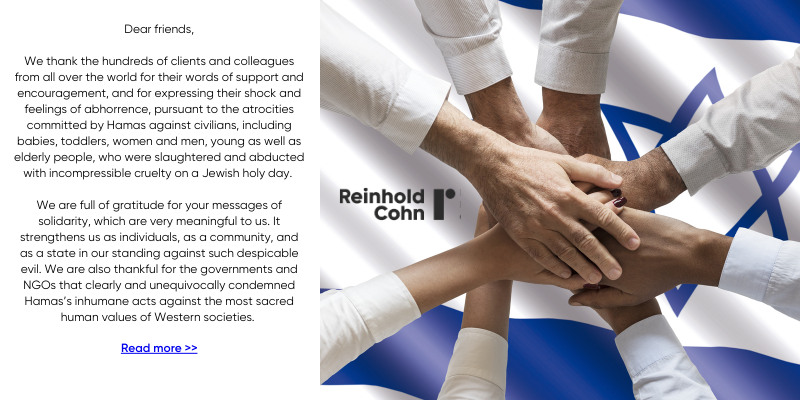A SLOGAN IN YOUR POCKET?

Catch-phrases and Slogans as Trademarks: Recent Practice and Change in Policy
In the wake of the recent decision by the Tel Aviv District Court, slogans are to be treated as any other trademark and may be inherently distinctive. The new Registrar of Trademarks revoked the earlier policy of the Israeli Trademark Office that set a higher examination standard for slogans.
Why register a slogan? Is a slogan ever registrable and on what conditions?
Whether a commercial slogan possesses sufficient originality and creativity to be protected by copyright requires judicial determination, and the outcome is not known beforehand. Such uncertainty may prompt the business that has invested in developing a successful catch-phrase to consider registering it as a trademark.
Slogans are in principle registrable if they are distinctive and not otherwise ineligible for registration. January 2012 saw a revocation of the policy, adopted in 2004, under which slogans were to be examined differently from “regular” trademarks, in that they were presumed to lack inherent distinctiveness and require a showing of “secondary meaning”.
IPTO policy and practice since 2004: slogans presumed to lack inherent distinctiveness
Registration of a slogan came under scrutiny in 2004 in the Zach decision, when the Registrar required a disclaimer of the slogan RETURNING NATURE TO WATER (in Hebrew) for water purification systems, in its entirety and of each constituent word, as a condition to allowing the registration of the entire mark composed of the stylized company name and the slogan1. The Zach decision defined a slogan as “a promotional phrase for use in advertising, designed to attract consumer attention to particular goods and typically accompanying the trade name”.
Later that year, the Registrar issued a Circular Letter M.N. 292 (the “2004 Circular Letter“) articulating its policy to view a slogan as devoid of inherent distinctiveness and/or as relating directly to the nature of goods. Therefore, a slogan was registrable only if it was shown to have acquired distinctiveness – or secondary meaning – through use and shown to serve, by itself, to identify the source of the goods in the eyes of the public. Slogans requested to be registered in conjunction with distinctive trademarks would be subject to a disclaimer (unless eligible by themselves).
In 2006, a neurologist was allowed to register the Hebrew phrase meaning FIRST … AND FOREMOST, which in Hebrew contains a pun on the word “head”, for medical information services, but was not allowed to register the phrase “treat the pain first … and foremost”.3 The opponent, Glaxo Smithkline, had argued, inter alia, that the phrases were not distinctive but rather idiomatic expressions. The Registrar allowed the registration of the first phrase, deeming it suggestive rather than descriptive. The applicant successfully showed use of the phrase since 1999 for advocating headache treatment methods. The second phrase was deemed directly descriptive of the services and unregistrable.
The definition of a slogan, articulated in the Zach decision, came up for additional discussion in another 2006 case. Facing an examiner’s refusal to register DO WHAT FEELS GOOD, The Coca-Cola Company argued, inter alia, that due to the difficulty of distinguishing slogans from other word marks, general criteria of eligibility, including inherent distinctiveness, should apply.4 The Registrar held that DO WHAT FEELS GOOD was a promotional slogan as defined in the Zach case, which was descriptive/laudatory and therefore not inherently registrable; secondary meaning was not proven.
Along the divide between slogans and marks, the phrase WHAT’S HIDDEN IN YOUR DATA? was held to have been used as a product mark (alongside the house mark Decision Detective) rather than a promotional slogan. However, it was held to lack distinctiveness, being descriptive of the service and not possessing a secondary meaning, and therefore a disclaimer was required for its inclusion within the composite mark “DECISION DETECTIVE What’s hidden in your data?”, which also featured a silhouette of a detective.5
In a 2009 case, the phrase A DIAMOND IN YOUR POCKET, not yet in actual use, was, after being initially rejected by an examining attorney as a slogan, deemed to be a trademark rather than a slogan and consequently registered, notwithstanding the fact that use of the mark had not yet commenced.6
In 2010 the Deputy Registrar refused registration of two slogans requested by a supermarket chain (the Hebrew equivalent of YOUR MONEY BUYS MORE and BECAUSE TIME IS AN EXPENSIVE STAPLE)7 and the Hebrew equivalent of THIS IS ALL FOR YOU requested by a consumer association,8 holding that they were not intended to function as trademarks. The slogan SEE THE FUTURE WISELY (in English and in Hebrew) was disallowed, due to lack of distinctive character, for photo-, video-, and audio- visual equipment.9
The Deputy Registrar allowed the device mark containing the Hebrew equivalent of the phrase GIDRON – BAKING THE FRESHNESS FOR YOU in the name of Gidron Industries, a major baked goods manufacturer (subject to a disclaimer of “baking” and “freshness” by themselves).10
Slogans registered abroad benefitted from the lower threshold of telle quelle registration
In 2010, a number of applications relied on the possibility of telle quelle registration under section 16 of the Ordinance. While section 8 of the Ordinance requires marks to possess distinctive character, telle quelle registration of a mark registered abroad is allowed under section 16 of the Ordinance as long as the mark is not devoid of any distinctive character.
The Registrar allowed telle quelle registration of some slogans as meeting the less stringent telle quelle standard. Thus, the Registrar allowed the registration of McDonald’s I’M LOVIN’ IT in the name of McDonald’s Corporation,11 as well as the registration of PARTY LIKE A ROCKSTAR in the name of a manufacturer of soft drinks (where the Registrar also had regard to the fact that the slogan contains another of the applicant’s marks, namely ROCKSTAR).12
In several other cases registration was refused because the marks were held not only to lack distinctive character as required for local marks but also to be devoid of any distinctiveness and thus not registrable under the less stringent standard of telle quelle registration. Following this reasoning, registration of the following was refused: BEST ENJOYED SLOWLY, ENJOYED IN 70+ COUNTRIES in the name of Philip Morris;13 TOGETHER WE CAN DO MORE for telecommunications in the name of Orange Brand Services;14 SENDING ALL THE RIGHT SIGNALS for electrical cables;15 and FREE YOUR SKIN for Schick’s shaving soaps and razors.16
In December 2011 the Tel Aviv District Court held that slogans may be inherently distinctive
The refusal of Schick’s slogan FREE YOUR SKIN sparked, on appeal, the appellate court’s scrutiny of the Trademark Office examination standard for slogans. While affirming the Trademark Office’s refusal to register Schick’s advertising slogan FREE YOUR SKIN as descriptive of shaving toiletries and razors, the Tel Aviv District Court held that slogans may be inherently distinctive.17
In an implicit departure from the 2004 Circular Letter, the Deputy Registrar of Trademarks held that in principle a slogan should be examined as any other mark but noted that in many cases slogans convey promotional messages to consumers, rather than indicate the source of the goods. He consequently refused registration, holding that the mark in question was a promotional slogan descriptive in a laudatory way of some aspect or quality of the goods and should therefore remain open to the public and that it was devoid of all distinctive character.
In its appeal to the Tel Aviv District Court, the appellant argued that slogans, as multi-word marks, may possess inherent distinctiveness and should not be automatically categorized as descriptive or laudatory. With regard to its propounded mark, it argued that FREE YOUR SKIN was not descriptive or laudatory but merely suggestive of the desired effect.
The court ruled that the registrability of slogans should be examined in accordance with the general criteria applicable to marks in general, and that the mere presence of a promotional message does not deprive a slogan of the ability to be inherently distinctive. The court further ruled that laudatory terms are registrable if they acquired distinctiveness or if they are original and a non-obvious choice.
In its decision the court critiqued the 2004 Circular Letter, in accordance with which slogans are devoid of inherent distinctiveness due to their nature as advertising messages that are not perceived as denoting source, and are registrable only if shown to have acquired distinctive character through use and to be perceived as indicators of source. The court held that the advertising purpose of a phrase does not by itself inherently prejudice its ability to indicate source and distinguish the goods.
The court noted that in order to examine whether a slogan has the ability to indicate source, various factors should be taken into consideration, inter alia, the content of the message, the manner of its display, the language, the length, the degree of its catchiness, the type of goods and the relevant segment of the public. As an auxiliary test, the question may be asked whether a consumer may be expected to use the slogan to request the goods from a sales assistant.
On the facts of the case, the court concluded that FREE YOUR SKIN was directly descriptive or laudatory of shaving cosmetics/razors, in a way that does not require a consumer to make any intellectual effort and does not show the minimum originality or sophistication required to make a mark suggestive. The court also noted that FREE YOUR SKIN is widely used in descriptions of cosmetic products and services and should be left open to the trade. The court concluded that the mark was devoid of any degree of distinctiveness and thus was not registrable under the less stringent standard of telle quelle registration.
The new Registrar of Trademarks revoked the 2004 Circular Letter that set a stricter examination standard for slogans
Following this decision, on January 5, 2012, the newly appointed Registrar of Trademarks revoked the 2004 Circular Letter regarding the stricter standard for the examination of slogans. Slogans therefore will be examined under the general criteria and may be found to be inherently distinctive. The new policy has already received expression in a recent decision of the Registrar, who did not refer to the propounded multi-word mark as a slogan.18
Furthermore, telle quelle protection may allow registration for otherwise ineligible slogans, provided that such slogans possess at least some degree of distinctiveness.
1 Zach v Tana Industries (1991) Ltd, Opposition to registration of mark No. 112645, ZACH WATER – RETURNING NATURE TO WATER (in Hebrew) in class 11, July 12, 2004. Because the slogan was not in his exclusive use, the applicant failed to show that the slogan had acquired a secondary meaning through use.
2 Circular Letter M.N. 29/2004 (August 17, 2004).
3 Dr Mosek v Glaxo Smithkline (Israel) Ltd, Opposition to the registration of the marks 165333, 165334, February 2, 2006.
4 Application by The Coca-Cola Company to register marks 171183 et al [DO WHAT FEELS GOOD], March 6, 2006.
5 Application by BTR Enterprises to register mark 175322 [DECISION DETECTIVE What’s hidden in your data?], January 23, 2007.
6 Application by D-Card Ltd to register mark 187420 [A DIAMOND IN YOUR POCKET], registration granted, March 12, 2009.
7 Application by Shufersal Ltd to register marks 208249, 209250 [YOUR MONEY BUYS MORE and BECAUSE TIME IS AN EXPENSIVE STAPLE, in Hebrew], August 15, 2010.
8 Application by Hever Permanent Force and Pensioners Ltd to register marks 193272 et al [THIS IS ALL FOR YOU, in Hebrew], August 12, 2010.
9 Application by Exit Electronics Ltd to register marks 208289-96 [SEE THE FUTURE WISELY], September 5, 2010.
10 Application by Gidron Industries Ltd to register mark 203895 [GIDRON — BAKING THE FRESHNESS FOR YOU, in Hebrew], August 15, 2010.
11 Application by McDonald’s Corporation to register mark 200350 [I’M LOVIN’ IT], August 19, 2010.
12 Application by Russell G. Weiner to register mark 204804 [PARTY LIKE A ROCKSTAR], August 29, 2010.
13 Application by Philip Morris Products S.A. to register marks 213403 & 189964 [BEST ENJOYED SLOWLY, ENJOYED IN 70+ COUNTRIES], August 29, 2010.
14 Application by Orange Brand Services Ltd. to register marks 215613-5, 213677, 213696 [TOGETHER WE CAN DO MORE], August 29, 2010.
15 Application by Belden Technologies Inc to register mark 192808 [SENDING ALL THE RIGHT SIGNALS], August 31, 2010.
16 Application by Eveready Battery Company Inc to register marks 204499, 204832 [FREE YOUR SKIN], August 29, 2010.
17 AR (TA Distr.) 21488-05-11 Eveready Battery Company Inc. v Registrar of Trademarks, December 8, 2011, before Justice Inbar; appeal from Application to register marks 204499, 204832 [FREE YOUR SKIN], August 29, 2010.
18 Application by Bank Leumi Lemaskantaot to register mark 217316 [A BREAK FROM MORTGAGE, in Hebrew], February 14, 2012 (registration refused due to lack of distinctive character, the mark being descriptive of the relevant services and not proven to have acquired distinctiveness).
This article is provided for general information only. It is not intended as legal advice or opinion and cannot be relied upon as such. Advice on specific matters may be provided by our group’s attorneys.

